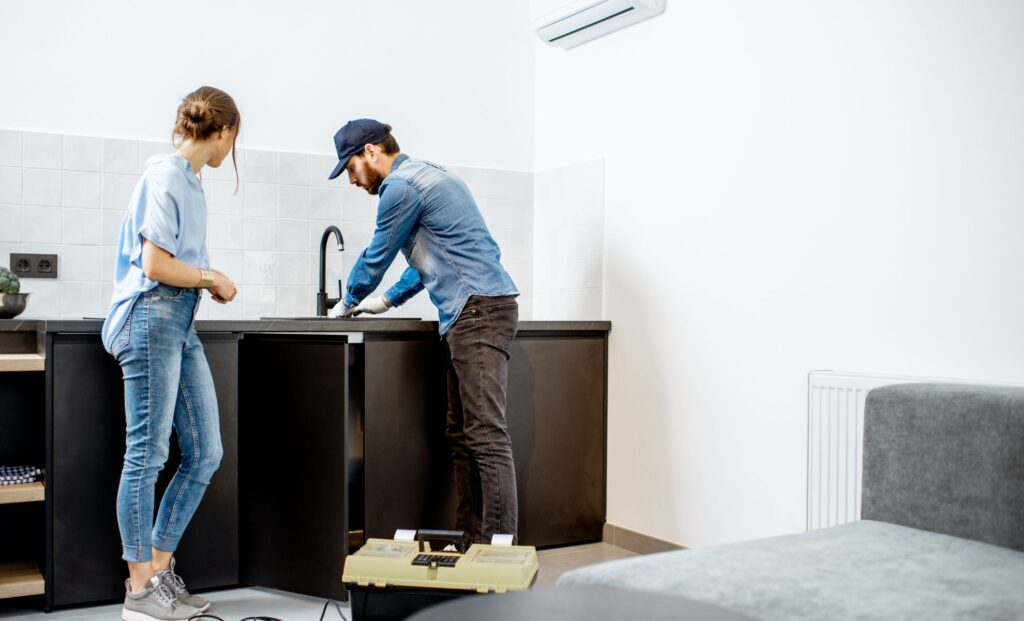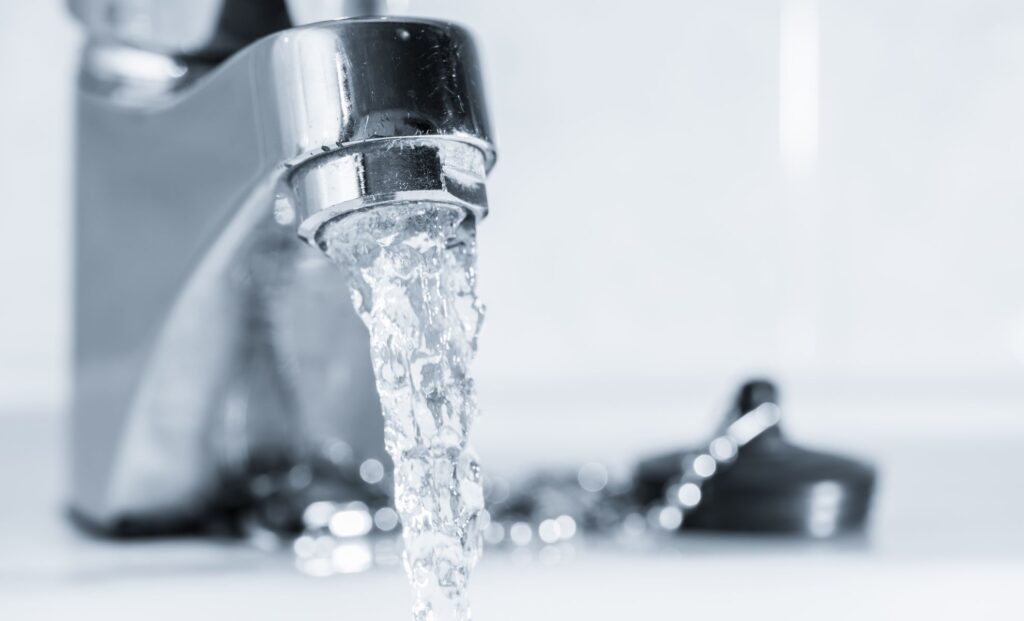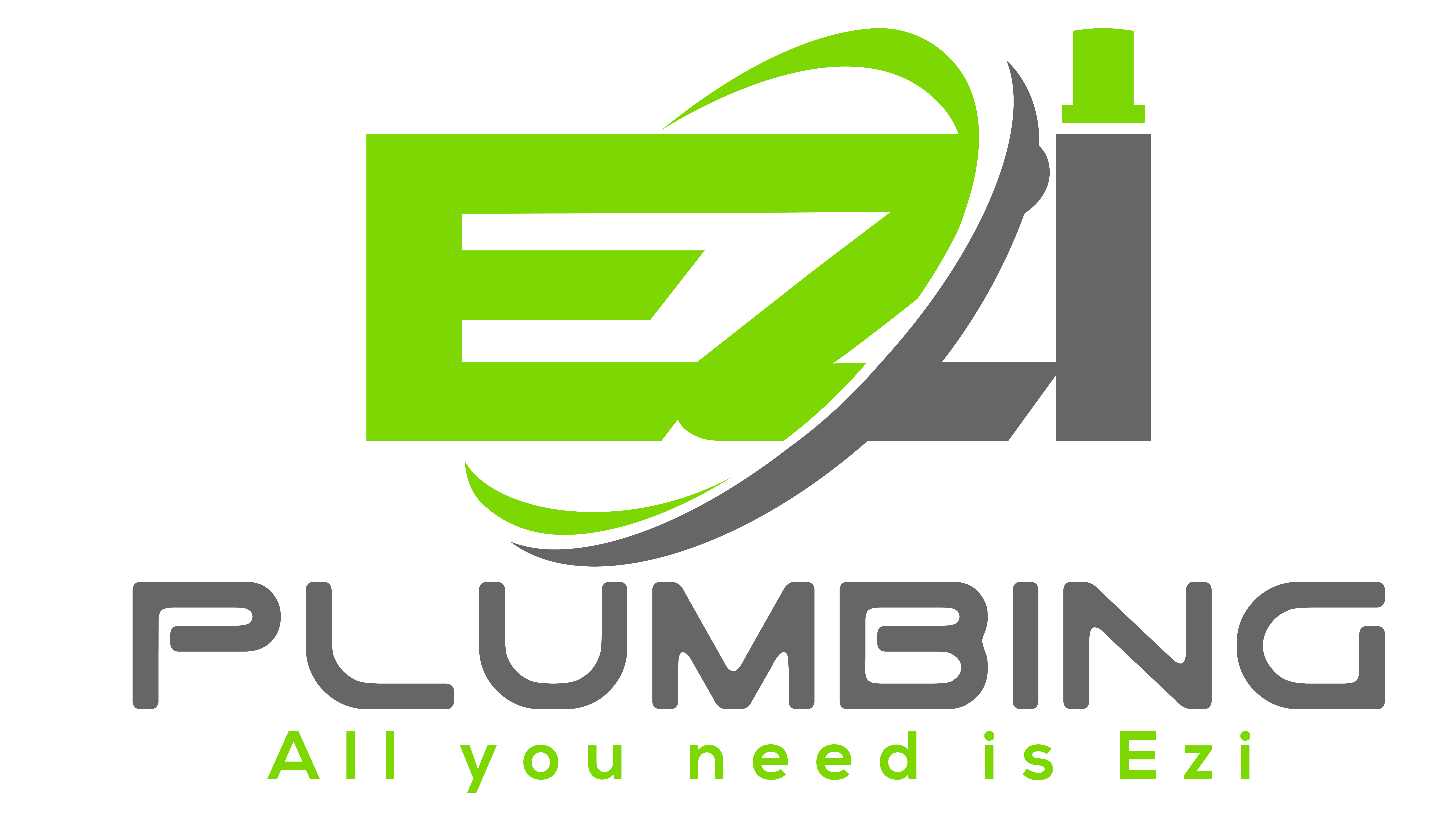A plumber plays an essential role in maintaining your home’s plumbing system. While you probably don’t think much about the network of water, sewer and stormwater pipes that deliver your hot and cold water, flush and remove your waste and convey stormwater away from your property. Plumbing systems require a little bit of regular attention to avoid leaks, drain issues and costly repairs. By following a few easy home plumbing maintenance tips, you can keep your system in good working order and minimise the need for a plumber to come out.

Here are some of the tasks a plumber can perform to keep your plumbing system in good condition:
- Inspecting and cleaning pipes: A plumber can inspect the pipes in your home to check for any signs of damage, such as leaks or corrosion. They can also clean out any blockages or debris that could cause blockages in your pipes.
- Repairing and replacing fixtures: A plumber can repair or replace plumbing fixtures that are damaged or not functioning correctly. This includes taps, toilets, cisterns, and showerheads.
- Checking water pressure: A plumber can test your home’s water pressure to ensure that it is at an appropriate level that will reduce risk of failure. High water pressure can make water supply system noisy, also causing damage to pipe and fixtures. While low water pressure can affect the efficiency of your plumbing system and cause fixtures not to function as designed to.
- Detecting leaks: A plumber can use specialised tools to detect leaks in your home’s plumbing system. This can prevent water damage and save you money on your water bill.
- Providing maintenance tips: A plumber can provide you with tips on how to properly maintain your plumbing system. This can include advice on what should and shouldn’t be flushed down the toilet, how to avoid blockages, and how to conserve water.
Overall, a plumber can help you keep your plumbing system in good condition, prevent major problems, and ensure that your home has a reliable and efficient water supply.
The importance of preventative plumbing maintenance
Preventative plumbing maintenance is important because it can help identify and fix small problems before they become larger and possibly a more expensive issue. Regular maintenance can also help extend the lifespan of plumbing systems, improve water efficiency, and ensure that everything is working as it should. Neglecting plumbing maintenance can lead to costly repairs, water damage, and health hazards due to mould and mildew. EZI Plumbing specialise in preventative maintenance, contact us today to discuss your requirements
Lifespan of a plumbing system
The lifespan of plumbing systems can vary depending on the type of materials used, the quality of installation, the level of maintenance they receive and the type of plumbing fixtures that are installed. Generally, the lifespan of plumbing systems can range from 20 to 100 years. For example, old, galvanised water pipes might have lasted 30 years before they corroded on the inside to copper pipes that can last up to 70 years.
Modern improvements in water piping, like polyethylene pipes may last up to 100 years. However, factors such as water quality, usage, and environmental conditions can also impact the lifespan of plumbing systems. Regular maintenance and repairs can help extend the life of plumbing systems, while neglect can lead to premature failure and costly replacements.

What can regular plumbing maintenance achieve?
Regular plumbing maintenance can achieve several benefits, including:
- Early detection and prevention of plumbing problems, such as leaks, blocked drains, and corrosion.
- Improved water efficiency by fixing any leaking taps, repairing cisterns to stop overflowing, or leaking cistern outlet valves.
- Ensuring that all plumbing fixtures are working correctly.
- Prolonging the lifespan of plumbing systems by keeping them well-maintained.
- Reduction in the risk of water damage to your property, which can be costly to repair.
- Improved health and safety by identifying and fixing any potential health hazards, such as mould and mildew caused by water leaks or poorly ventilated spaces.
- Cost savings by avoiding major plumbing repairs and minimising water waste, which can lead to lower water bills.
Regular plumbing maintenance can also give you peace of mind, knowing that your plumbing systems are working correctly and that any potential issues are being addressed before they turn into costly problems.
What is normal water pressure?
Normal home water pressure is typically between 350 and 500 kilo pascals (kPa). This pressure can vary depending on several factors, such as the location of the home, the height of the home above sea level, and the height of the water source. In general, high-water pressure can cause damage to pipes, fixtures, and appliances, while low water pressure can result in reduced water flow and lower efficiency. It’s essential to monitor your home’s water pressure and ensure that it is within the appropriate range to avoid any issues with your plumbing system. If you’re experiencing high or low water pressure, you should contact a licensed plumber to diagnose and fix the problem.
Australian Standards for water pressure inside buildings is a minimum of 50kPa to a maximum of 500kPa. Appliances such a dishwasher, washing machines or fridges may have a maximum rated pressure. If this pressure was to be exceeded, then any warranty could be void.
In areas of high-water pressure, it will be necessary to install a pressure reduction valve or a pressure reducing valve at the water meter. This will reduce the pressure to each tap or fixture on the property.
Maintaining your homes drainage system
There are 2 types of drainage systems on your property.
- Sewer drainage system
- Storm Water drainage system
Sewer drainage system
Maintaining your home’s sewer drainage system is essential to prevent blocked drains, and other issues that can cause damage to your property. Here are some tips to help maintain your home’s sewer drainage system:
Avoid flushing non-biodegradable items: Only flush human waste and toilet paper down your toilet. Other items such as wipes, feminine hygiene products, or paper towels should be disposed of in the trash. Flushing these items can cause clogs in your pipes. Toilet paper is made to break down immediately as it is a loose weave product. Wipes are extremely tough with inter woven fibres and do not break down.
Use bathroom drain strainers: Place strainers over your sink and shower drains to prevent hair, soap scum, and other debris from going down the drain. It’s surprising just how much hair we loose and it is very tough and does not readily break down.
Use kitchen sink strainers: Food scraps washed down our drains can accumulate and block our home sewer system. Food scapes also become nutrients and are harder for bacteria to break down naturally. Remember what is washed down our drains can become a problem at the treatment facility and can end up again on our beaches and river systems.
Clean your drains: Periodically clean your drains using a mixture of hot water, vinegar, and baking soda. Pour the mixture down the drain, let it sit for 10-15 minutes, and then flush with hot water.
Address leaks promptly: Fix any leaks in your pipes or fixtures as soon as possible to prevent water damage and mould growth.
Avoid pouring grease down the drain: Grease can solidify and clog your pipes. Instead, pour it into a container and dispose of it in the trash. Or wipe it out of pots and pans with paper towel and dispose of in the trash. Grease and fat does not break down and it needs to be removed from our sewer treatment system or it will end up in the environment.
Hire a professional plumber: A licensed plumber can inspect your drainage system, identify any issues, and perform necessary repairs or maintenance to keep it functioning correctly. A plumber understands the different plumbing systems and can also provide advice to homeowners on ways to be sewer system friendly and especially environment friendly.
By following these tips, you can help keep your home’s drainage system in good condition and avoid expensive repairs or damage.
Storm water system
Maintaining your home’s stormwater drainage system is important to prevent water damage to your property, erosion, and flooding. Here are some tips to help maintain your home’s stormwater drainage system:
Clean gutters and downpipes: Regularly clean your gutters and downpipes to prevent leaves, twigs, and other debris from clogging them. This will ensure that rainwater can flow freely from your roof and away from your property.
Install and maintain drainage systems: If your property is prone to flooding, consider installing a drainage system that might incorporate a dry well, or sump pump. These systems can help redirect water away from your property.
Check for leaks: Inspect your home’s exterior walls and foundation for any cracks or gaps that may allow water to seep in. Fill any gaps with an appropriate gap filler or other sealant.
Direct water away from your property: Ensure that the grading around your home slopes away from your property to prevent water from pooling around the foundation. Water sitting around foundations can make the base of foundations weak causing them to fall or be undermined.
Avoid dumping chemicals: Do not dump chemicals or hazardous materials down storm drains. These materials can contaminate our local beaches, waterways, and harm aquatic life.
Hire a professional: A licensed plumber can inspect your system, identify any issues, and perform necessary repairs or maintenance.
By following these tips, you can help keep your home’s stormwater drainage system in good condition, prevent water damage and flooding, and protect the environment.
Why plumbing is important and how it impacts your own life
Plumbing services are a crucial aspect of modern society and impacts our daily lives in a variety of ways. Here are some reasons why plumbing is important:
- Access to clean water: Plumbing allows us to have access to clean water for drinking, cooking, and cleaning. Without plumbing, we would have to obtain water from natural sources such as wells or streams, which may not be safe for consumption.
- Sanitation: Plumbing systems allow us to remove waste and sewage from our homes and communities. This prevents the spread of disease and helps maintain a clean and healthy living environment.
- Comfort and convenience: Plumbing allows us to have amenities such as showers, toilets, and washing machines in our homes, making our lives more comfortable and convenient.
- Fire protection: Plumbing systems are often used for fire protection, such as sprinkler systems in commercial buildings. This helps prevent and minimize property damage and can save lives.
In summary, plumbing is important because it provides access to clean water, allows for proper sanitation, provides comfort and convenience, and can even help protect against fires. Without plumbing, modern society as we know it would not be possible.
Conclusion
Plumbing services are a complex system of pipes and fixtures that transport water and waste from our homes and businesses. Plumbers help to maintain these systems so that they work efficiently and safely.
If your pipes aren’t in good condition, you may see a reduction in the amount of water flowing through them. This is a common precursor to future problems and should be addressed as soon as possible.
Having too much or too little water pressure is another issue you can look out for and can be fixed with regular maintenance. Hidden leaks, mineral build-up in the pipes, and the location of your house are all factors that can cause low water pressure.
A professional plumber from our team can help you to adjust your water pressure and solve any other plumbing issues you might be having. A well-maintained plumbing system will help your home run more efficiently and prevent costly repairs down the road.
Plumbers, plumbing, home plumbing, plumbing system maintenance, skills
Plumbing issues, commercial plumbing, residential plumbing, blocked drains, gas hot repair, electric hot repair.

